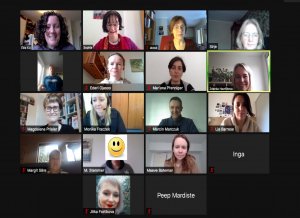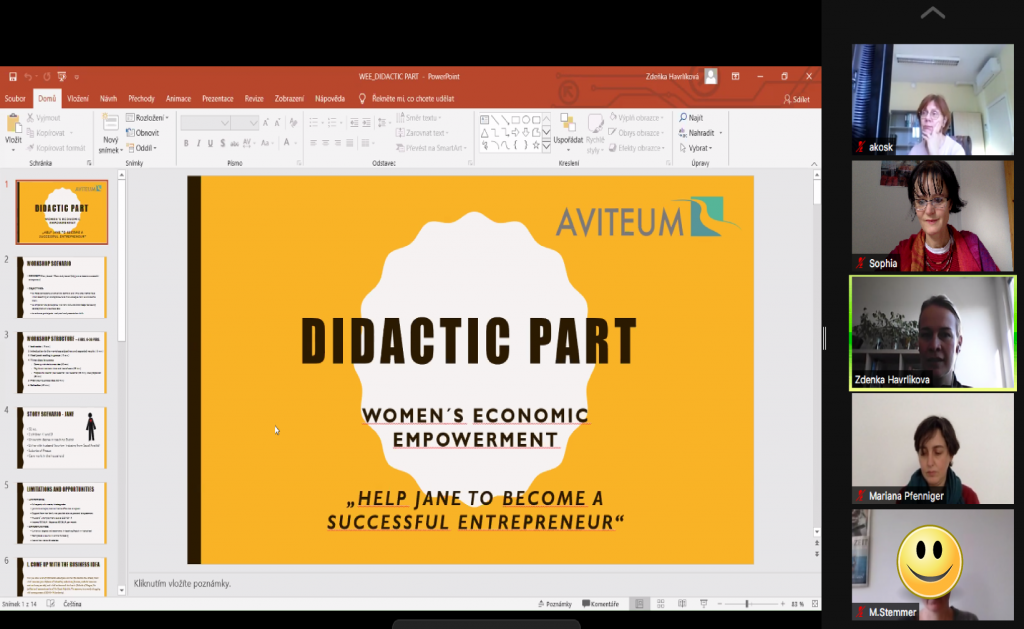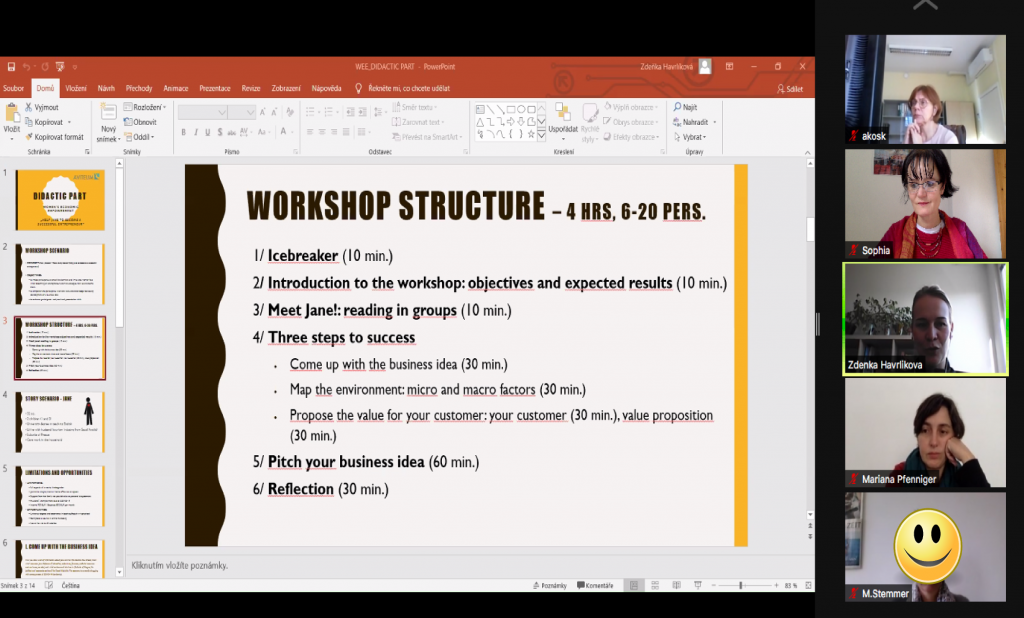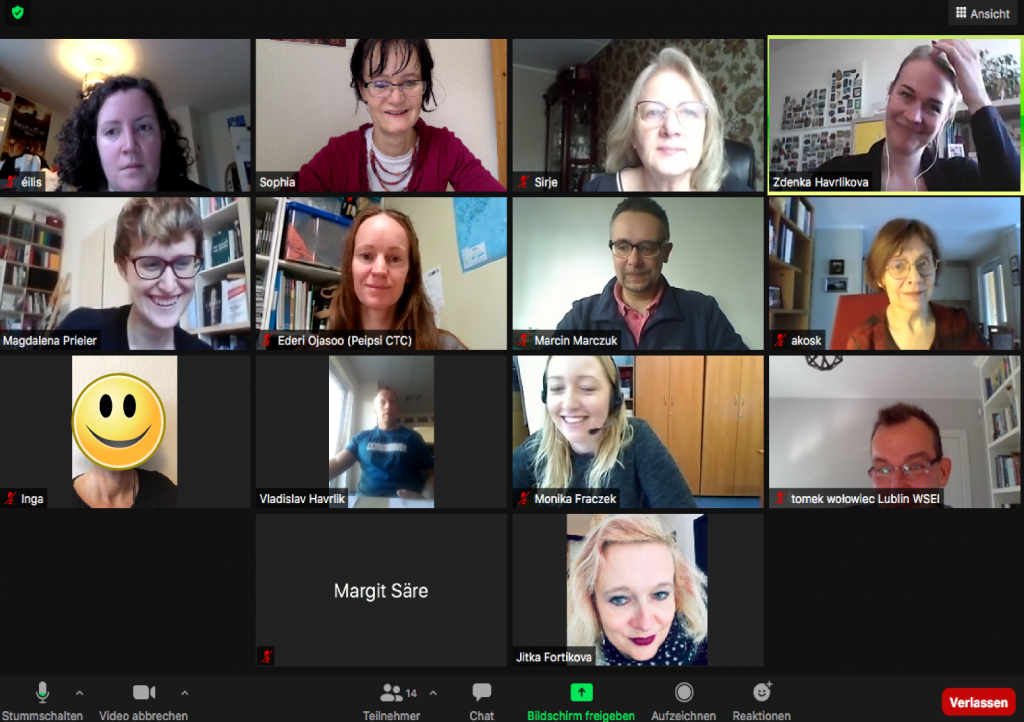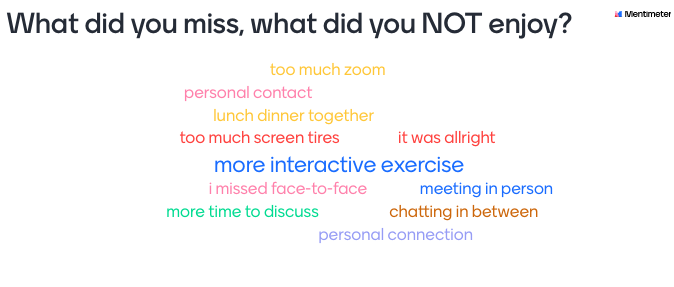“That was much better than expected.” “The exchange and feedback culture were very good. The comments on the articles were relevant and extremely helpful. This is not that often practised.” “Cooperation, that’s the meaning of EU projects.” “I was very impressed by the interactive didactic parts.” “Good atmosphere despite online communication.”
For one week, from 16-20/11/2020, project participants from seven organizations in seven European countries agreed on the first seven contributions to the learning platform. Due to the Corona crisis, the workshop had to be postponed several times and now had to take place online. The topics discussed included Modern Monetary Theory (MMT), Debt, Europe and the Global South, Economic Strategies to Manage the (EU) Crises, Perspectives on the Future of Europe: Competition or Cooperation, Public Goods and Social Welfare, Climate and Economy, and the Empowerment of Women as Actors in the Economy.
Multi-perspectivity: what does that mean?
As diverse as the topics are, so different are the approaches the authors have chosen. While some are socialised with the neoclassical approach and less familiar with the reference to several theoretical frameworks in one article, others tend to take (post-)Keynesian perspectives and contrast them with neoclassical arguments. Is there only one view? What is the best way to design educational materials so that readers know “where they stand” and are not overwhelmed? The unexcited, fairly frequent discussion of these questions encouraged the exploration of other perspectives and the reflection of one’s own. One thing is already certain: The learning platform will be a kind of Gesamtkunstwerk.
Online didactics
Refreshed and full of experience, the Irish partner introduced the use of interactive online tools. Mentimeter, speakeasy, jamboard and padlet were immediately applied in the attempt to test the elaborated didactic parts of the educational materials together online and in small groups. It went surprisingly well. The participants learned that Germany burns the most lignite in the world, that around 80% of the global primary energy supply consists of fossil fuels, practiced with bank balance sheets, debated crisis scenarios and collected macro and micro factors that need to be considered when founding a company. And much more. The materials will now be revised in the light of feedback and made available on the learning platform in early 2021.
Online workshops: a nonsensual-sensual experience
Nevertheless, an online workshop can bridge the gap, but cannot replace the intensity and versatility of a ‘real’ exchange. Not all didactic parts could be applied and discussed together. What was missing were the discussions in pairs or in small groups over lunch or in the evening, which have such a positive effect on the group activities. There was a lack of ideas from the breaktime discussions and the opportunity to deepen individual topics. Most of the group already knew each other. That was our advantage.
Socioeconomic education is democracy education
Our goal is to make economy and society understandable. Particularly in times of profound transformations, of climate change, changes driven by digitalisation, and the negative consequences of the corona crisis that are to be expected for the economy and the social security of citizens: this understanding may help to avoid lapsing into interpretations of reality that go hand in hand with disdain for other people or groups.

